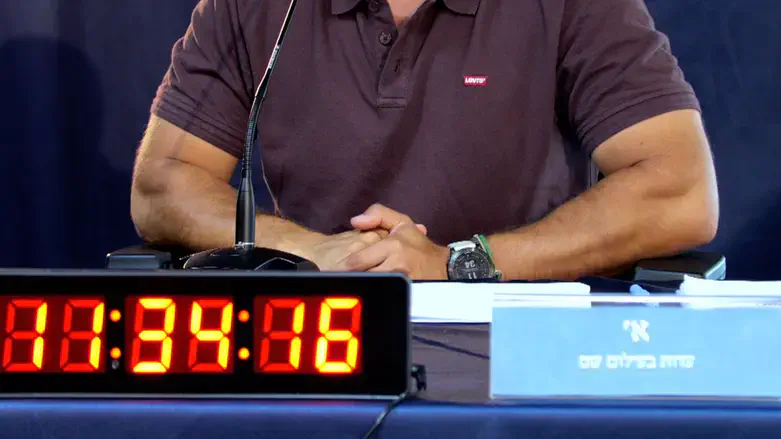
A career officer in active service who fought in the Gaza region on the morning of October 7 testified today (Tuesday) before the Civilian Board of Inquiry for the October 7th massacre.
He referred to the border fence: "When they built the fence, they told us it was impenetrable both underground and above ground. Therefore, we gradually stopped carrying out proactive operations and moved them towards the old parts of the fence based on that perception, and none of us questioned it from the platoon level to the battalion commander level. It sounded strange to me because of the old military saying that 'passive defenses will always be breached'."
"During the construction of the fence, they held a conference with us, relatively close to the border. An armored battalion commander and two infantry battalion commanders gave a presentation on how they perceive the new defense conception. One of the things I remember is a description of how we should reduce the forces in the sector and start relying more on technology. The intention was to use the infantry forces as reserves only, to minimize proactive operations and patrols on the fence, and to rely heavily on technological capability in the area. A nice idea, but in reality, these things don't hold up. In recent years, this has also been the concept in the north."
"The actual forces were about half of the departmental standard and the company commander was in a dilemma. He has two options – the first is to wear out the soldiers and not give them time to rest, turning them into guard dogs. This leads to significant wear and tear on the force, which naturally causes a decline in response to the threat. The second option, which many commanders chose, is to change the defense concept. First, they reduced proactive activities in all lines, did fewer ambushes, fewer point closures, and then also reduced guard posts."
"Our ability to operate under such immense bureaucracy affects the quality of our performance. When we go on a patrol, there is a patrol sheet that needs to be filled out, which contains a checklist, which includes equipment, check-in, and we knew that in the end, I am measured by this sheet being signed and submitted. When you have ten minutes to fill out the sheet, you do a rushed briefing, you check your team insufficiently, and you end up not doing things the right way, but the sheet is signed, and the bureaucracy stands. Most of the commanders in the IDF focused mainly on the world of presentations. I too sinned in this manner; I had many wonderful presentations, but that is not the essence and it is empty of content."
"At the beginning of the fighting, we tried to conduct an investigation on what we learned. But just like those soldiers on the line, when wear and tear rise, and every time you leave the Strip you need to rush in again, your ability to conduct a quality investigation drops to zero. An investigation is sometimes the domain of those who have time. You only check what you are measured on, and the investigations in the ground forces have become a personal PR display of mine as a platoon commander, a company commander, or a deputy. They talk about what you did and not about shortcomings. The investigations became empty of content and full of headlines."
"One of the lessons I took from 7.10 is the lack of command and control. It simply did not exist in any way, not at the division level, brigade, or in organic units. This caused insane confusion, so much that it is only apparent a year later. It caused the deployment of forces in an unwise manner, and I know from testimonies that sometimes there were significant forces of 50-100 fighters, entire companies equipped, who were not allowed to approach the war zone and did not know where to go."
"I realized that the Gaza Division was defeated only after four months, by watching a television report. If we had waited for orders, there would have been no one left to save. The individual soldiers decided October 7th - people who simply took their equipment and sought to engage the enemy. I have never seen soldiers charging forward like that to save lives."
